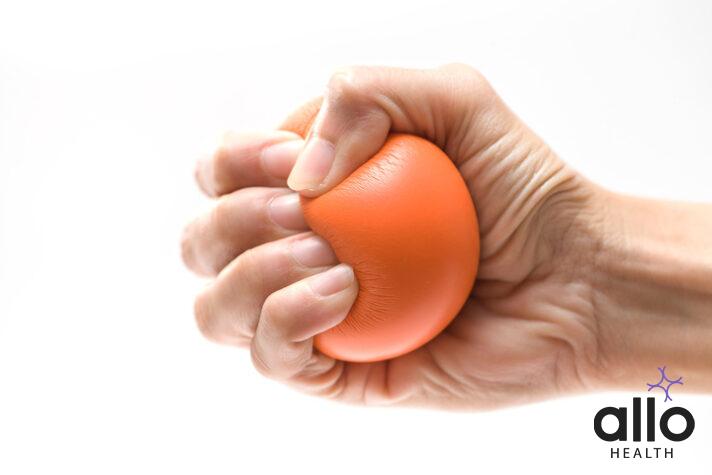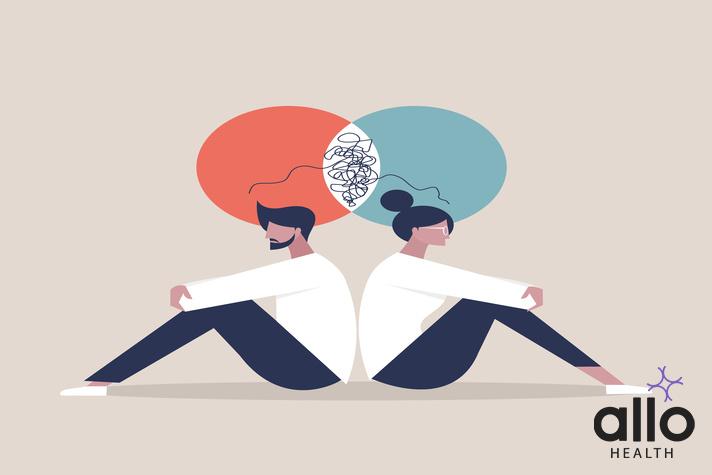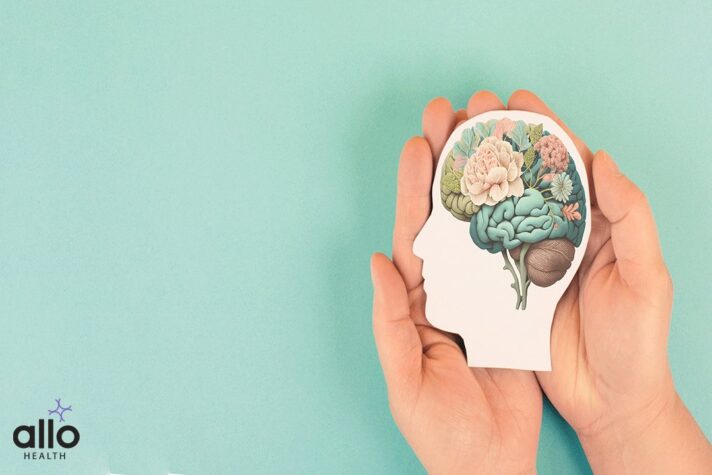Understanding Erectile Dysfunction: Insights from Psychology Today

Allo Health is dedicated to personalized well-being, offering support and trusted information tailored to individual health goals. The platform emphasizes human-generated content, led by a distinguished medical team of experts, including physicians and sexual health specialists. Their commitment to credibility involves rigorous fact-checking, authoritative research, and continuous updates to ensure accurate, up-to-date information. Allo Health's unique approach goes beyond conventional platforms, providing expert-led insights and a continuous commitment to excellence, with user feedback playing a crucial role in shaping the platform's authoritative voice.

Dr Sanina Mansoor holds MBBS degree from Yenepoya university,Mangalore.She has 8 years of experience working as a medical officer at various health centres and medical colleges.
Why This Was Upated?
Our experts continually monitor the health and wellness space, and we update our articles when new information became available.
Updated on 16 June, 2024
- Article was updated as part of our commitment to diversity, equity, and inclusion.

"The following blog article provides general information and insights on various topics. However, it is important to note that the information presented is not intended as professional advice in any specific field or area. The content of this blog is for general educational and informational purposes only.
Book consultation
The content should not be interpreted as endorsement, recommendation, or guarantee of any product, service, or information mentioned. Readers are solely responsible for the decisions and actions they take based on the information provided in this blog. It is essential to exercise individual judgment, critical thinking, and personal responsibility when applying or implementing any information or suggestions discussed in the blog."
Exploring the complex phenomenon of Erectile Dysfunction (ED) is essential for a comprehensive understanding of its causes and potential treatments. This introductory piece, titled “Understanding Erectile Dysfunction: Insights from Psychology Today,” delves into the psychological aspects associated with ED, shedding light on the emotional and mental factors that can contribute to this condition. By examining the psychological dimensions of ED, we aim to provide valuable insights that can aid individuals, healthcare professionals, and researchers address this prevalent trouble more effectively.
The Psychology of Erectile Dysfunction
Erectile dysfunction (ED) is a prevalent and distressing sexual dysfunction condition that affects many men worldwide. While ED has physical causes, such as underlying medical conditions and lifestyle factors, it is crucial to acknowledge the significant role psychology plays in its development and persistence. a thorough medical evaluation should be conducted to find out any other medical condition.
Psychological factors like anxiety, depression, stress, and performance anxiety can exacerbate or even be the primary cause of maintaining an erection firm enough for sexual play. Understanding the psychological aspects of ED is vital for comprehensive medical treatments and support.
Therapeutic interventions, including cognitive-behavioral therapy and counseling, aim to address these emotional factors, offering hope and solutions to those affected by ED and overcoming feelings of shame. This overview highlights the importance of a holistic approach to ED, considering both physiological and psychological factors in its diagnosis and treatment.
Causes and Risk Factors of Erectile Dysfunction

- Physical factors: Erectile dysfunction (ED) can result from underlying medical conditions such as diabetes, hypertension, higher heart rate, heart disease, or obesity.
- Psychological factors: Stress, anxiety, depression, and relationship conflict can contribute to ED by affecting sexual arousal, performance, and sexual satisfaction.
- Lifestyle choices: Smoking, excessive alcohol consumption, and drug abuse can harm blood vessels and hinder proper blood flow to the penis, leading to ED.
- Medications: Certain prescription drugs, including antidepressants and blood pressure medications, may have side effects that cause or worsen ED.
- Hormonal imbalances: Low testosterone levels in men can diminish sexual desire and function in men, increasing the risk of ED.
- Aging: As men age, their risk of ED naturally increases due to declining sexual stimulation, sexual function, and hormonal changes.
Psychological Triggers of Erectile Dysfunction

- Stress and Anxiety: High-stress levels can lead to increased cortisol production, affecting blood flow and causing erectile dysfunction (ED).
- Depression: Depression can reduce libido and cause ED as a result of altered neurotransmitter levels in the brain.
- Performance Anxiety: Fear of not satisfying a partner can create performance anxiety, leading to temporary or chronic ED.
- Relationship Conflicts: Strained relationships, lack of emotional connection, or unresolved conflicts can contribute to ED.
- Low Self-Esteem: Negative self-perception can hinder sexual confidence and contribute to ED.
- Past Trauma: Childhood trauma or sexual abuse can lead to psychological barriers affecting sexual performance.
- Pornography Addiction: Excessive pornography consumption may cause depression and desensitize the brain’s reward system, causing ED in real-life situations.
- Body Image Concerns: Negative body image can reduce sexual self-esteem and result in ED.
- Medication Side Effects: Some medications used to treat psychological conditions can have ED as a side effect.
- Substance Abuse: Excessive alcohol or drug use can impair the central nervous system, leading to ED.
The Role of Anxiety in Erectile Dysfunction

Erectile dysfunction (ED) is a multifaceted concern influenced by various factors, one of which is anxiety. Anxiety can significantly impact a man’s ability to achieve or maintain an erection. Stress, performance anxiety, and relationship concerns can exacerbate ED. Understanding the intricate interplay between psychological factors like anxiety and physiological aspects of ED is crucial for effective diagnosis and treatment. Addressing anxiety through therapy, lifestyle changes, or medication can be an essential component of managing and mitigating this common concern, ultimately improving men’s overall sexual health and quality of life.
The Connection between Depression and Erectile Dysfunction

Exploring the intricate relationship between depression and erectile dysfunction reveals a compelling interplay of psychological and physiological factors. Depression, a pervasive mood disorder, can profoundly impact a man’s sexual health by disrupting the delicate balance of hormones, neurotransmitters, and emotional well-being.
Understanding how depressive symptoms affect both desire and physical responses sheds light on the intricate mechanisms underlying erectile dysfunction. This connection highlights the importance of holistic approaches to address these intertwined complications, emphasizing the need for comprehensive mental and sexual health care.
Effects of Stress on Erectile Function

The impact of stress on erectile function is a significant concern that warrants exploration. Stress, whether it’s related to work, relationships, or other factors, can trigger physiological responses in the body that interfere with the normal functioning of the male reproductive system. Chronic stress may lead to hormonal imbalances, reduced blood flow to the genital area, and psychological factors like anxiety, all of which can contribute to erectile dysfunction. Understanding the intricate connection between stress and erectile function is essential for individuals and healthcare professionals alike to develop effective strategies for managing and mitigating these concerns.
The Impact of Relationship Trouble on Erectile Function

Exploring the intricate connection between emotional well-being and physical health, this article delves into the effects of relationship turmoil on erectile function. As stress and emotional distress are known to play a significant role in sexual health, this discussion aims to shed light on how interpersonal conflicts can influence a man’s ability to achieve and maintain an erection. Understanding this interplay can offer insights into the holistic approach required for addressing sexual health concerns within the context of relationship dynamics.
Understanding the Link Between Sexual Trauma and Erectile Dysfunction
This article delves into the intricate relationship between experiences of sexual trauma and the development of erectile dysfunction in men. It aims to shed light on the psychological, emotional, and physiological factors that contribute to this correlation. By gaining a deeper understanding of this connection, individuals and healthcare professionals can work together to address the multifaceted aspects of sexual health and trauma recovery.
Treatment Options for Psychological Erectile Dysfunction

Psychological Erectile Dysfunction (PED) is a condition in which a person struggles to achieve or maintain an erection due to psychological factors. Various treatment options exist for PEDs, emphasizing the importance of addressing the underlying emotional and mental causes.
- Counseling and therapy: Psychotherapy, including cognitive-behavioral therapy (CBT) and sex therapy, can help individuals identify and resolve emotional issues contributing to PED.
- Medications: In some cases, medications like selective serotonin reuptake inhibitors (SSRIs) or phosphodiesterase type 5 (PDE5) inhibitors may be prescribed to alleviate symptoms.
- Lifestyle changes: Adopting a healthy lifestyle, including regular exercise, a balanced diet, and stress management, can improve overall mental well-being and reduce PED symptoms.
- Communication: Open and honest communication with a partner can also be beneficial in addressing psychological factors contributing to PED.
Combining these approaches can lead to the successful management of PEDs, improving overall sexual health and well-being.
Mindfulness-Based Therapy for ED Management

Mindfulness-Based Cognitive Therapy for ED Management is a holistic approach aimed at addressing eating disorders (ED) by fostering a heightened awareness of thoughts, emotions, and bodily sensations. This therapeutic method encourages individuals to cultivate a non-judgmental, present-moment focus, which can help them better understand and manage their relationship with food and body image. By promoting self-compassion and reducing impulsive behavior, Mindfulness-Based Therapy empowers those struggling with ED to develop healthier habits and attitudes toward eating and self-image. It offers a promising avenue for achieving lasting recovery and well-being.
The Benefits of Couple’s Therapy for ED

Couple’s therapy for Erectile Dysfunction (ED) offers numerous advantages. Firstly, it provides a safe and supportive environment for partners to openly discuss their concerns and feelings about ED, promoting better communication. Secondly, it helps identify underlying emotional and relational conflicts that may contribute to ED, allowing for holistic treatment. Thirdly, therapy can lead to increased intimacy, enhancing the emotional connection between partners. Overall, couples therapy not only addresses ED but also fosters a healthier and more fulfilling relationship.
Herbal Remedies and Supplements for Improving Erectile Function

Natural Approach: Herbal remedies and supplements offer a natural alternative to traditional medications for enhancing erectile function.
- Improved Blood Flow: Certain herbs like ginseng and ginkgo biloba can promote better blood circulation, vital for achieving and sustaining erections.
- Hormone Balance: Tribulus terrestris and maca root supplements help balance hormones, potentially improving sexual desire and performance.
- Enhanced Nitric Oxide: L-arginine and citrulline supplements stimulate the production of nitric oxide, a crucial molecule for dilating blood vessels in the penis.
- Reduced Stress: Adaptogenic herbs like ashwagandha can reduce stress, a common contributor to erectile dysfunction.
- Consultation Required: It’s essential to consult a healthcare professional before using any herbal remedies to ensure safety and effectiveness.
- Lifestyle Factors: Herbal remedies work best when combined with a healthy lifestyle, including exercise and a balanced diet.
These remedies provide potential benefits while promising, results may vary, and individual responses to these remedies should be monitored.
The Role of Diet and Exercise in Overcoming ED
The significance of diet and exercise in addressing Erectile Dysfunction (ED) is substantial. A well-balanced diet rich in nutrients like antioxidants, omega-3 fatty acids, and vitamins can improve blood flow, support vascular health, and reduce ED risk. Regular physical activity promotes overall cardiovascular fitness, which is crucial for sustaining healthy erectile function. Combined, these lifestyle modifications can enhance circulation, reduce stress, and increase self-confidence, all contributing to an improved ability to overcome ED, making them integral components of a holistic approach to managing this condition.
Conclusion
In conclusion, the intricate relationship between psychological factors and erectile dysfunction is undeniable. This article has shed light on the multifaceted nature of this condition, emphasizing the crucial role of emotional well-being, stress management, and communication in addressing it. By recognizing the psychological aspects, individuals and healthcare professionals can work together to develop more comprehensive approaches to effectively treat and manage erectile dysfunction, ultimately enhancing the overall quality of life for those affected.
Most Asked Questions
-
What is the primary cause of erectile dysfunction discussed in the article?
The article explores various causes of erectile dysfunction, but it primarily emphasizes the psychological factors contributing to the condition. It delves into the role of stress, anxiety, and relationship issues in impeding sexual performance.
-
Are there effective psychological interventions mentioned in the article?
Yes, the article highlights several psychological interventions like therapy, counseling, and mindfulness techniques that can help individuals manage and overcome erectile dysfunction. It provides insights into how these approaches can improve sexual function.
-
Does the article address the impact of lifestyle choices on erectile dysfunction?
Absolutely. The article discusses how lifestyle factors such as diet, exercise, and substance abuse can influence erectile function. It offers guidance on making healthier choices to reduce the risk of this condition.
-
Are there any statistics or prevalence rates mentioned in the article?
Yes, the article provides statistics about the prevalence of erectile dysfunction, giving readers a better understanding of how common this issue is among different age groups and populations.
-
Can the article be beneficial for partners of individuals experiencing erectile dysfunction?
Certainly. The article discusses the importance of communication and support from partners. It offers insights into how partners can play a positive role in helping those affected by erectile dysfunction, making it a valuable resource for both individuals and their loved ones.






































